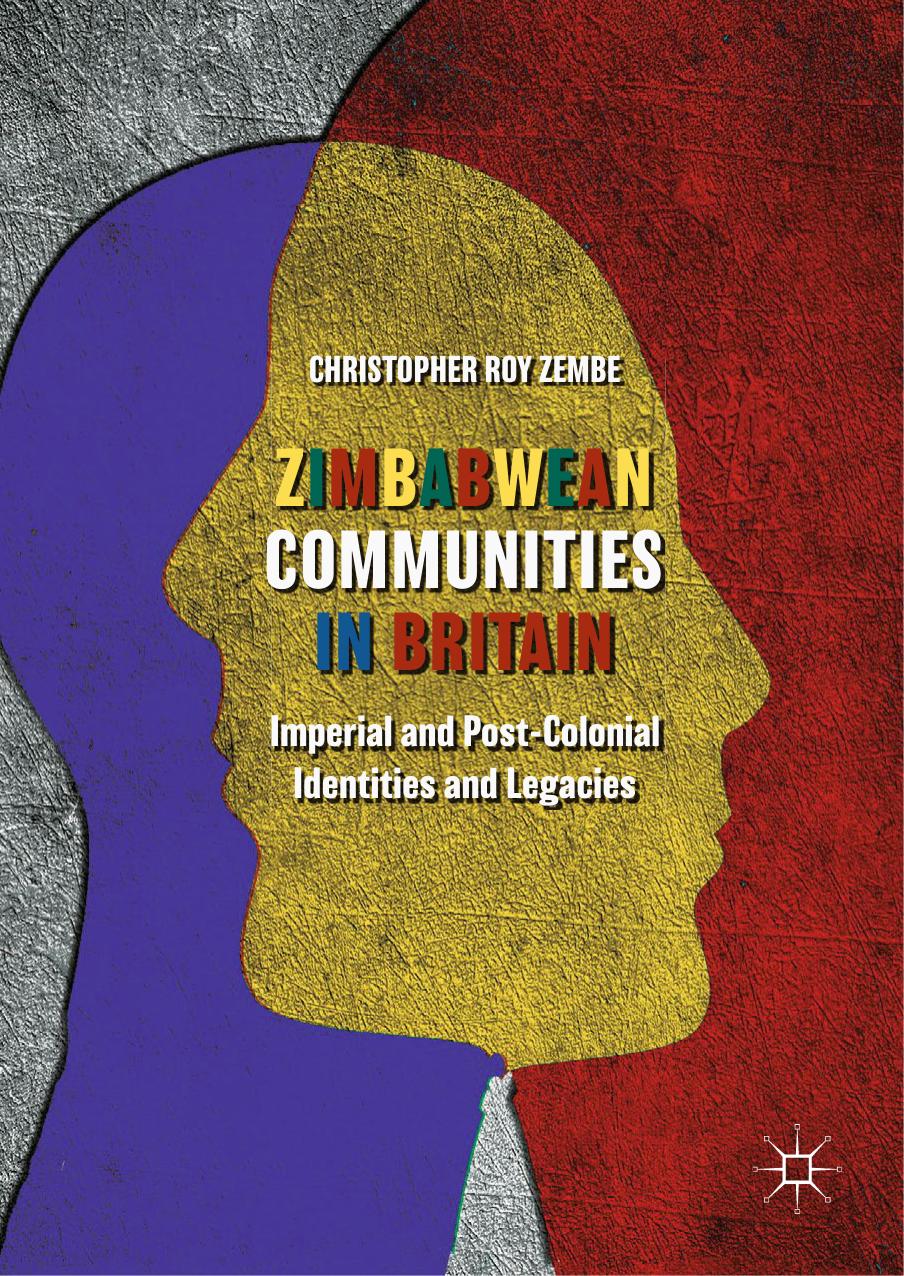Zimbabwean Communities in Britain by Christopher Roy Zembe

Author:Christopher Roy Zembe
Language: eng
Format: epub, pdf
Publisher: Springer International Publishing, Cham
Intergenerational Differences
The importation of homeland prejudices within the White immigrant community exposed intergenerational differences . This was because young Zimbabwean Whites who were born towards the end of the liberation struggle or in independent Zimbabwe added another dimension to the complex process of historical influences on the construction of a Zimbabwean White diaspora community. These were individuals with no recollection of colonial lifestyle or propaganda to persuade them to adopt a colonial identity or to relate to what went on at Rhodesian-themed events such as July Braai . Their memories of Zimbabwe would be based on a multiracial society with no official racial boundaries to determine a person’s position in society. Neither did they bother to join the virtual community on Facebook . Twenty-four-year-old Terry and twenty-six-year-old Jessica, both born in independent Zimbabwe, recalled how after attending the July Braai with their parents they vowed not to return because of the racist rhetoric (Terry interview, November 2013; Jessica interview, November 2013). Kenneth, who migrated in 2001 when he was eighteen, also admitted that Rhodesian-themed events never appealed to him despite his parents being regular attendees (Kenneth interview, January 2014).
With friends or acquaintances across the racial divide, there was awareness that associating with groups or events with visible links to colonial Rhodesia might jeopardise the friendships established prior to migration . Kenneth also explained how rejection of a colonial identity by young White Zimbabweans had made them feel comfortable with participating in the multiracial Zimbabwe Music Festival (ZIMFEST) held in London . ZIMFEST had emerged to be one of the largest single annual summer events bringing together Zimbabweans from across the cultural or racial spectrum to celebrate Zimbabwe’s music, sports, food or arts. The use of Zimbabwean flags and the participation of musicians across racial or tribal lines had provided a platform where post-colonial Zimbabwe’s memories and experiences were celebrated by Zimbabweans from different racial or ethnic backgrounds.
Despite ZIMFEST being hailed as an event that brings multi-racial Zimbabweans together, it was rejected by some older generation Black Zimbabweans who castigated it as a false and misleading representation of the Zimbabwean diaspora community relations. Happison described the event as a ‘profit driven commercial venture by predominantly White organisers with no interest in addressing historical racial issues to bring sustainable unity between the racially fragmented Zimbabwean communities in Britain’ (Happison interview, January 2013). He also trivialised the involvement of Blacks in organising the event by accusing them of being ‘used’ by Whites to ensure Black attendance. He justified his claim that ZIMFEST is a business venture with no interests in promoting racial relations by questioning why the event:… charge as much as £30 entry fee per head and once inside buying food or drinks can be expensive when a plate of Sadza and relish of green vegetables and meat-stew, plus a one can of beer can be over £20. Imagine the cost for a family of four.
Download
Zimbabwean Communities in Britain by Christopher Roy Zembe.pdf
This site does not store any files on its server. We only index and link to content provided by other sites. Please contact the content providers to delete copyright contents if any and email us, we'll remove relevant links or contents immediately.
| Africa | Americas |
| Arctic & Antarctica | Asia |
| Australia & Oceania | Europe |
| Middle East | Russia |
| United States | World |
| Ancient Civilizations | Military |
| Historical Study & Educational Resources |
Goodbye Paradise(3810)
Men at Arms by Terry Pratchett(2838)
Tobruk by Peter Fitzsimons(2518)
Borders by unknow(2315)
Arabs by Eugene Rogan(2299)
Pirate Alley by Terry McKnight(2222)
More Than Words (Sweet Lady Kisses) by Helen West(1867)
Belonging by Unknown(1859)
It's Our Turn to Eat by Michela Wrong(1731)
The Biafra Story by Frederick Forsyth(1656)
The Source by James A. Michener(1615)
Botswana--Culture Smart! by Michael Main(1602)
Coffee: From Bean to Barista by Robert W. Thurston(1547)
A Winter in Arabia by Freya Stark(1538)
Gandhi by Ramachandra Guha(1534)
The Falls by Unknown(1527)
Livingstone by Tim Jeal(1491)
The Shield and The Sword by Ernle Bradford(1409)
Africa: Altered States, Ordinary Miracles by Richard Dowden(1385)
